DETROIT (AP) — Canada’s two largest railroads are starting to shut down their shipping networks as a labor dispute with the Teamsters union threatens to cause lockouts or strikes that would disrupt cross-border trade with the U.S.
Both the Canadian Pacific Kansas City (CPKC) and Canadian National railroads, which haul millions of tons of freight across the border, have stopped taking certain shipments of hazardous materials and refrigerated products.
Both are threatening to lock out Teamsters Canada workers starting Thursday, Aug. 22, if deals are not reached.
On Tuesday, Aug. 20, CPKC will stop all shipments that start in Canada and all shipments originating in the U.S. that are headed for Canada, the railroad said Saturday.
The Canadian Press reported that on Aug. 16, Canadian National barred container imports from U.S. partner railroads.
Jeff Windau, industrials analyst for Edward Jones & Co., said his firm expects work stoppages to last only a few days, but if they go longer, there could be significant supply chain disruptions.
“If something would carry on more of a longer term in nature, then I think there are some significant potential issues just given the amount of goods that are handled each day,” Windau said. “By and large the rails touch pretty much all of the economy.”
The two railroads handle about 40,000 carloads of freight each day, worth about $1 billion, Windau said. Shipments of fully built automobiles and auto parts, chemicals, forestry products and agricultural goods would be hit hard, he said, especially with harvest season looming.
Both railroads have extensive networks in the U.S., and CPKC also serves Mexico. Those operations will keep running even if there is a work stoppage.
CPKC said it remains committed to avoiding a work stoppage that would damage Canada’s economy and international reputation. “However we must take responsible and prudent steps to prepare for a potential rail service interruption next week,” spokesman Patrick Waldron said in a statement.
Shutting down the network will allow the railroad to get dangerous goods off of its network before any stoppage, CPKC said.
Union spokesman Christopher Monette said in an email Saturday that negotiations continue, but the situation has shifted from a possible strike to “near certain lockout” by the railroads.
CPKC said bargaining is scheduled to continue on Sunday with the union, which represents nearly 10,000 workers at both railroads. The company said it continues to bargain in good faith.
Canadian National said in a statement Friday that there had been no meaningful progress in negotiations and it hoped the union “will engage meaningfully” during a meeting scheduled for Saturday.
“CN wants a resolution that allows the company to get back to what it does best as a team, moving customers’ goods and the economy,” the railroad said.
Negotiations have been going on since last November, and contracts expired at the end of 2023. They were extended as talks continued.
The union said company demands on crew scheduling, rail safety and worker fatigue are the main sticking points.
Concerns about the quality of life for rail workers dealing with demanding schedules and no paid sick time nearly led to a U.S. rail strike two years ago before Congress intervened and blocked a walkout. The major U.S. railroads have made progress since then in offering paid sick time to most rail workers and trying to improve schedules.
Windau said the trucking industry currently has a lot of excess capacity and might be able to make up some of the railroads’ shipping volumes, but, “You’re not going to be able to replace all of that with trucking.”
The Associated Press is an independent global news organization dedicated to factual reporting. Founded in 1846, AP today remains the most trusted source of fast, accurate, unbiased news in all formats and the essential provider of the technology and services vital to the news business. The Trucker Media Group is subscriber of The Associated Press has been granted the license to use this content on TheTrucker.com and The Trucker newspaper in accordance with its Content License Agreement with The Associated Press.








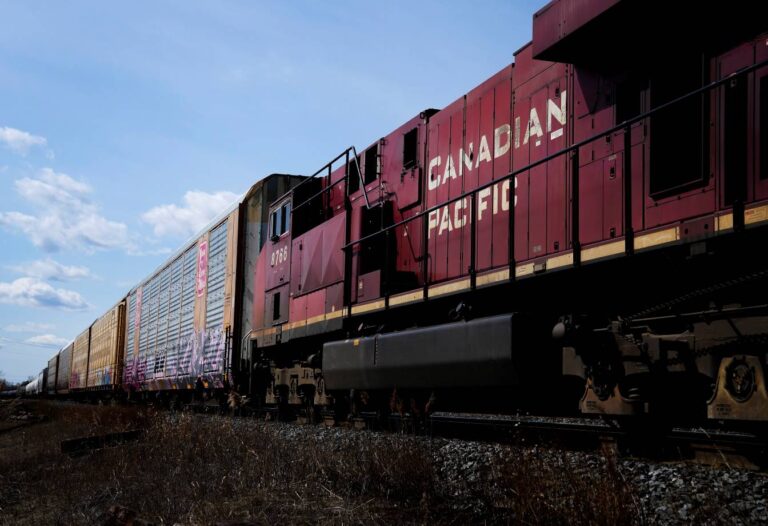

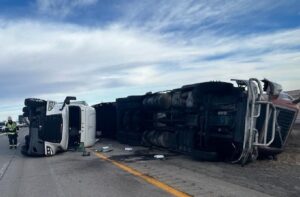
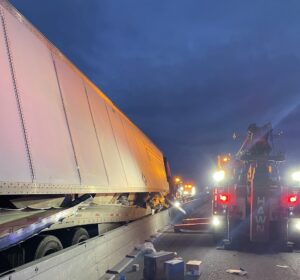
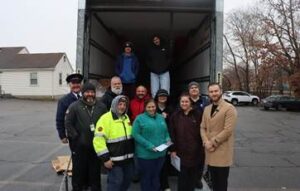
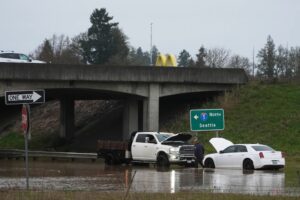


N/A